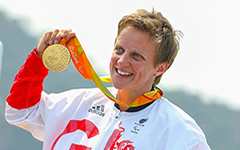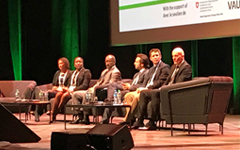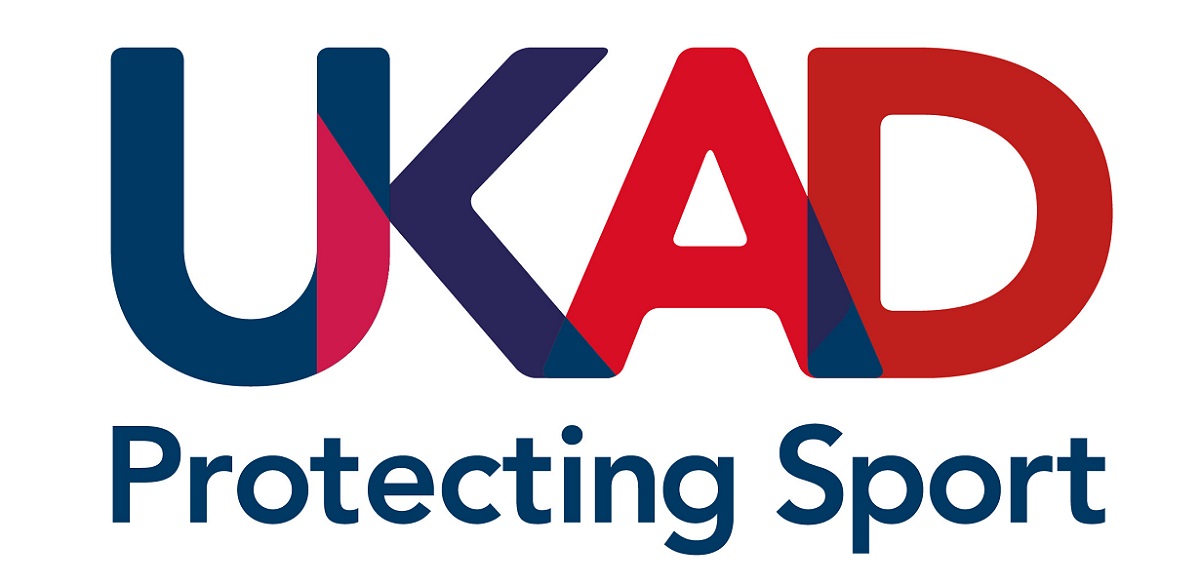Nicola Phillips OBE: “There had to be a meeting before I was allowed on the rugby team bus"
UK Anti-Doping Board member, Nicola Phillips, was awarded an OBE in the New Year’s Honours. Nicola is an internationally registered physiotherapist and professor at Cardiff University. She has worked extensively with both the Welsh and British teams at Commonwealth Games and Olympic Games for over 25 years, and was Chef de Mission for Wales’s Commonwealth Games team in 2018. Nicola was also President of the International Federation of Sports Physical Therapy from 2011 to 2017.
UKAD caught up with Nicola ahead of International Women’s Day to talk about her introduction to sport, overcoming barriers and advice for other women.
What made you want to enter the sporting environment? Presumably it was quite a male-dominated environment when you first started?
I’ve always loved sport – being one of those people who have a go at lots of sports and activities but not a champion in any of them! I also knew from early on that I wanted to work in an area where I helped people, so sports physiotherapy was the perfect combination. The fact that I might be entering a world where, as a female, I would be very much in the minority, didn’t really occur to me at the time. By the time I noticed that, I was too passionate about wanting to be the best I could be to care about it and just kept pushing the perceived barriers.
What barriers or challenges have you faced as a woman working in the sporting environment?
When I first started working in both rugby and weightlifting, I was the only female involved with the team. All the athletes were male but so were all the support staff and managers. The athletes were always fine as they just wanted a good physio to help them perform and manage injuries, but there had to be a committee meeting before I was allowed on the away bus with the rugby club I worked for. The concern was that I would distract the players too much but really it was probably the committee who were concerned, not the players.
And how did you overcome those barriers?
I overcame any barriers by being the best I could be – looking back, I think I actually had to be better than any male physio they could recruit, so that they had no choice but to appoint/retain me. That is not the case these days and females very frequently work in those roles. I have no regrets on that; in fact it probably drove me to improve and I might not have got to do other representative things, or link into academia if I had gone through a more “comfortable” early development. That doesn’t work for everyone but a challenge is always a big motivator for me!
What advice would you give to women looking to work in elite sport on an organisational level, or as support staff?
To be the best you can be and to be confident of those abilities if you know you’re right. Take feedback or criticism and build on it. Have someone you can sound off to when you feel battered – it will help you enormously. Elite sport is challenging and it is full of driven people, so having some emotional resilience is important, regardless of sex.
What have been your top three experiences or memories from the Commonwealth and Olympic Games?
- Walking into my first Opening Ceremony (Edinburgh 1986 Commonwealth Games and 1992 Olympic Games)
- Watching Geraint Thomas win gold in the 2014 Glasgow Commonwealth Games Road race, straight off the back of the Tour de France and getting back on his bike after a puncture just before the end - one of those “I was there” moments.
- The third is not from a major Games – it is supporting Richard Parks on his Everest and Yak Attack challenges in Nepal – wonderful country and wonderful people, both in the team and everyone else around us.
What was your reaction on hearing the news of your OBE and how did you find out?
I was stunned when I opened the letter informing me that I had been nominated and would be awarded an OBE. I got the letter in November and had to keep quiet for a month. First of all I was really humbled to know that colleagues had nominated me, as well as their response when they heard the news. I was also extremely proud for my profession when Prince Charles commented on how pleased he was to see a physiotherapist get recognised, as it doesn’t happen that often and he recognised how much we did to keep people active.
Where do you see the elite sporting environment progressing over the next 10 years? Do you feel women will continue to play more important roles and that the gender balance will improve?
I hope the gender balance will improve over the next 10 years. There are now far more role models for other young aspiring athletes and support staff to follow. Some of those apparently solid walls have been broken down after much pushing, so I hope that in 10 years it will be commonplace to see women leading teams as well as supporting – in the same way as it is now commonplace to see female physios running on a rugby pitch, whereas it was a newsworthy event when I started almost 30 years ago!



